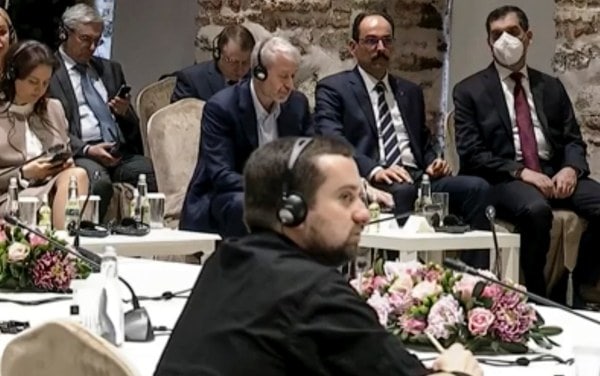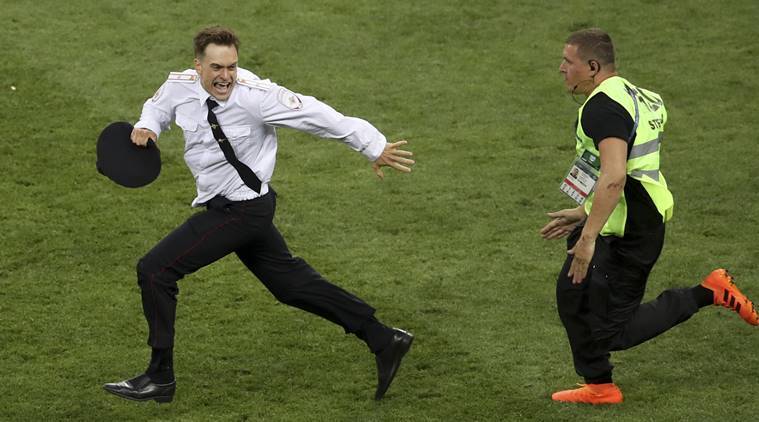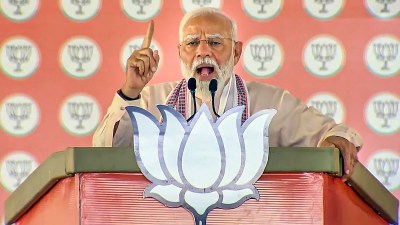- India
- International
Explained: Before Roman Abramovich, the Kremlin critics who were ‘poisoned’ by Russia
Russia has been accused of poisoning Chelsea FC owner Roman Abramovich and two others. This isn't the first time it has been accused of poisoning Kremlin critics. A look at past instances
 Chelsea soccer club owner Roman Abramovich (AP Photo/Martin Meissner, File)
Chelsea soccer club owner Roman Abramovich (AP Photo/Martin Meissner, File)Russia has been accused of yet another attempt to poison a Kremlin critic. This time it is billionaire Roman Abramovich, who according to reports, suffered symptoms of poisoning earlier this month during the peace talks at the Ukraine-Belarus border.
On March 3, Abramovich, who owns Chelsea FC, joined Russian and Ukrainian negotiators along with two more delegates who experienced symptoms that were consistent with poisoning with chemical weapons, the website Bellingcat reported.
The investigative website also said that three of the members, including Abramovich, retired to an apartment in Kyiv after the negotiations and felt initial symptoms including eye and skin inflammation and piercing pain in the eyes.
All three, who had consumed only chocolate and water in the hours preceding the onset of symptoms, recovered within a week. Another member who had consumed the same, did not experience symptoms. Bellingcat said an alternative, but less likely theory is that microwave irradiation was used.
 Roman Abramovich, top center, 3rd from right, listens to Turkish President Recep Tayyip Erdogan during the Russian and Ukrainian delegations meeting for talks in Istanbul, Turkey, Tuesday, March 29, 2022. (Turkish Presidency via AP)
Roman Abramovich, top center, 3rd from right, listens to Turkish President Recep Tayyip Erdogan during the Russian and Ukrainian delegations meeting for talks in Istanbul, Turkey, Tuesday, March 29, 2022. (Turkish Presidency via AP)
A report in the Wall Street Journal alleged the poisoning was initiated by Russian hardliners who wanted to sabotage the negotiations.

This isn’t the first time Russia has been accused of poisoning Kremlin critics. Other instances:
Aleksei Navalny: In 2020, Russia’s most prominent opposition leader Aleksei Navalny, a fierce critic of Putin, survived poisoning by a nerve agent. He claimed it was carried out by Russian authorities, an allegation they continue to deny.
In August 2020, Navalny’s spokesperson Kira Yarmysh said on Twitter that while Navalny was returning to Moscow by air, he felt unwell as a result of which the plane made an emergency landing in Omsk. “We assume Alexei was poisoned with something mixed into the tea. It was the only thing that he drank in the morning. Doctors say the toxin was absorbed faster through the hot liquid. Alexey is now unconscious,” Yarmysh wrote on the social media platform at the time of his poisoning.
Navalny survived the poisoning, and after his return to Russia in February 2021, was arrested.
 Aleksei Navalny, Sergei Skripal (File Photos)
Aleksei Navalny, Sergei Skripal (File Photos)
Sergei Skripal: On March 4, 2018, former Russian spy Skripal and his daughter Yulia Skripal were found unconscious on a bench in the British city Salisbury after they were poisoned by a military-grade nerve agent Novichok. Both of them have since recovered, including police officer Nick Bailey, one of the first responders who fell seriously ill after being exposed to the nerve agent.
The only person who died from the exposure was a 44-year old woman who passed away a few months later when she came into contact with the nerve agent. The woman was exposed to it by a counterfeit perfume bottle that had been discarded in Salisbury.
In 2006, Skripal was sentenced to 13 years in prison after he was accused of spying for Britain. At the time, Russia claimed that Britain’s intelligence service MI6 had paid him $100,000 for revealing the identities of Russian secret agents in Europe. After his conviction, Skripal was pardoned in 2010 by then Russian president Dmitry Medvedev.
After the poisoning, all Russian intelligence officers working under diplomatic cover in the UK and many other countries were expelled. The US expelled over 60 such officers. The investigation led by the UK government later revealed that the poisonings were an attempted assassination attempt carried out by agents of the Russian intelligence service called the GRU.
Skripals’ poisonings are also the subject of the BBC One drama titled, “The Salisbury Poisonings”. According to some news reports, Skripal and his daughter are now staying in New Zealand under new identities.
Pyotr Verzilov: A few months after Skripal, an anti-Kremlin activist and Putin critic, who is a member of the Russian protest group called Pussy Riot, took ill after a poisoning attempt. Pyotr Verzilov alleged it was carried out by Russian intelligence services. After he fell ill in September 2018, he was evacuated to Berlin from Moscow, where doctors confirmed his symptoms were consistent with poisoning.
He told BBC in 2018 that the reasons why they might have tried to poison him could be his participation in a pitch invasion during the 2018 FIFA World Cup final, after which Verzilov and three other members of Pussy Riot were jailed briefly. The other reason cited by Verzilov was for investigating the case of three Russian journalists who were “murdered” in the Central African Republic (CAR).
 In this Sunday, July 15, 2018 file photo, Pyotr Verzilov invades the pitch as a steward tries to stop him during the France and Croatia 2018 World Cup final match in the Luzhniki Stadium in Moscow, Russia.
In this Sunday, July 15, 2018 file photo, Pyotr Verzilov invades the pitch as a steward tries to stop him during the France and Croatia 2018 World Cup final match in the Luzhniki Stadium in Moscow, Russia.
Vladimir Kara-Murza: In 2017, Putin critic and journalist Kara-Murza fell into a coma after a suspected poisoning attempt. In 2015, Kara-murza nearly died and suffered sudden kidney failure after another alleged poisoning attempt. According to a report in The New York Times, after the 2015 attempt, a French lab found elevated levels of heavy metals in his blood. Kara-Murza has recovered since then, and resides in Moscow.
Alexander Litvinenko: Former spy Litvinenko, who was being paid by the MI6 and was investigating Spanish links to Russia, was killed in November 2006 after he ingested a fatal dose of polonium 210 while drinking tea at Millenium Hotel in London. At the time, he was meeting with Russian politician Andrei Lugovoy and his associate Dmitri Kovtun. Lugovoy is considered to be one of the main suspects.
While Litvinenko did not survive, Russia continues to deny any involvement in the incident. Litvinenko was an officer in the Federal Security Service (FSB), the successor of the KGB and was dismissed in 1998 after he made public allegations of illegal activity within the FSB. He left Russia in 2000, and in 2001 was given asylum in Britain.
An inquiry report into his death released in 2016 by the British authorities concluded, “Taking full account of all the evidence and analysis available to me, I find that the FSB operation to kill Mr Litvinenko was probably approved by Mr Patrushev and also by President Putin.”
Viktor Yushchenko: In 2004, Viktor Yushchenko was poisoned in the midst of an election campaign, in which he was expected to defeat the Russia-backed candidate. Yushchenko ingested dioxin, a chemical found in Agent Orange while he was eating dinner with the head of Ukraine’s security service.
The poisoning severely disfigured his face and his test results showed that he suffered from chloracne, which is caused by exposure to toxic chemicals. Yushchenko eventually recovered and went on to win the presidential elections that year. He accused the Ukrainian authorities of trying to poison him.
Georgi Markov: Bulgarian writer, BBC journalist and dissident Markov was assassinated in September 1978 while he was on his way back to the BBC office in London. While waiting for a bus on the Waterloo Bridge, Markov’s leg was jabbed by a poison-tipped umbrella. The BBC notes that while he was admitted in the hospital, he told the staff about his conviction that it was the work of the KGB.
In 1978, Bulgaria, which is a part of NATO now and later joined the European Union, was considered to be the “sixteenth republic” of the Soviet Union, formally a bloc of 15 countries.
Newsletter | Click to get the day’s best explainers in your inbox
More Explained
EXPRESS OPINION
Apr 25: Latest News
- 01
- 02
- 03
- 04
- 05











































